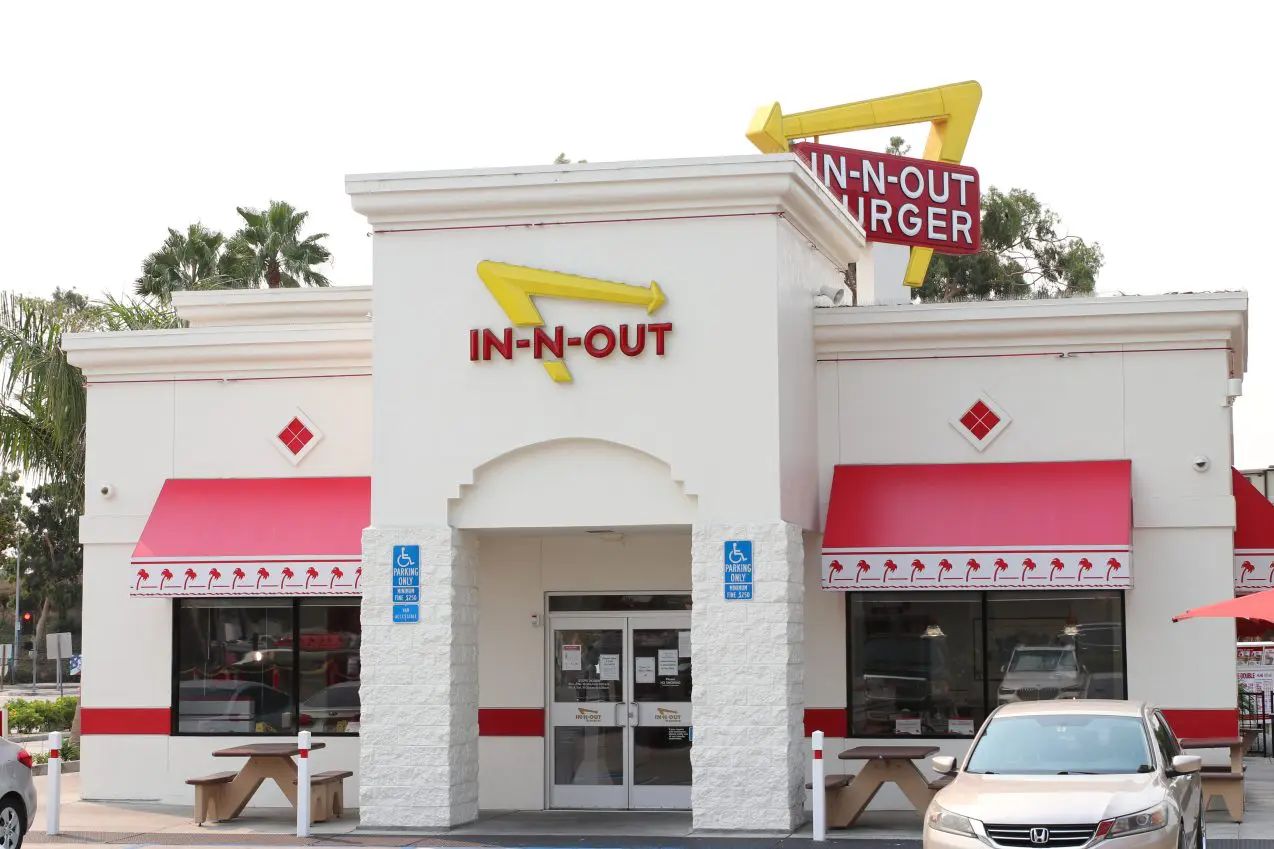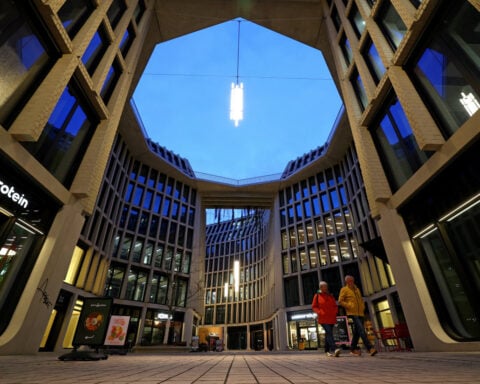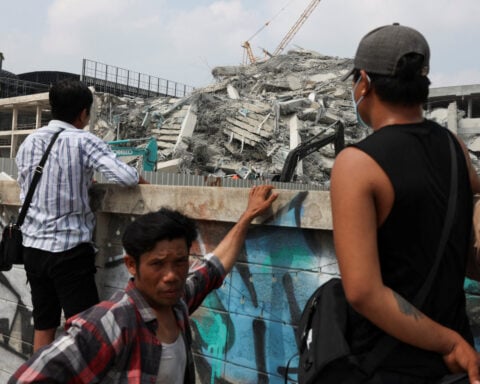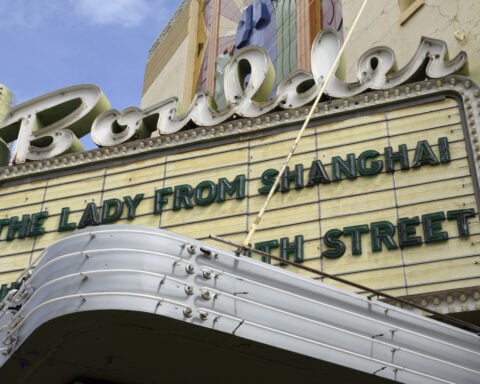For the first time in its 75-year history, the iconic West Coast burger chain In-N-Out announced it is permanently closing one of its restaurants - the lone Oakland, California location - on March 24 due to rampant crime plaguing the area.
In a statement, In-N-Out Chief Operating Officer Denny Warnick cited the alarming frequency of "car break-ins, property damage, theft, and armed robberies" victimizing customers and employees as leaving them "no alternative" but to shutter entirely. He confirmed that despite being a busy and profitable venue, the company refuses to "ask [customers or staff] to visit or work in an unsafe environment."
The shocking move underscores a crisis of public safety unfolding in the city. According to Oakland Police Department statistics, burglaries rose 23% in 2023 over 2022 while motor vehicle thefts spiked 44%. The In-N-Out site near Oakland International Airport stood out as a particular hotbed, logging 1,335 police incidents in the vicinity since 2019 - more than any other location citywide.
Security guards reported handling multiple break-in reports daily at the restaurant. One evening this January, the San Francisco Standard observed three cars with smashed windows in the parking lot within 90 minutes. For the past year, Oakland recorded 9,092 auto burglaries, a nearly 7% year-over-year increase.
The epidemic of property crime and violence prompted urgent calls for added police resources from local leaders like Councilwoman Treva Reid, whose district includes In-N-Out. But she expressed frustration at the lack of response so far while conditions deteriorated. “We’re in a state of emergency. Should it have to take a declaration to deliver [services] when we’re living this?" she told KPIX-TV. "My district has been in crisis.”
In-N-Out’s departure deals a symbolic and practical blow to Oakland. The iconic California chain draws consistent customer traffic as a convenient rest stop for Oakland International passengers and attendees traveling to Oakland Athletics baseball games at the nearby Coliseum. Now the closest In-N-Out is over 20 miles away.
For a city recently hemorrhaging prominent businesses due to crime concerns, the shutdown also signals a continuation of corporate disinvestment from Oakland. Just last fall, Target announced it would permanently close a profitable Oakland store - along with eight others in major cities - because of retail theft and threats to employee safety.
In recent months, national chains like Walgreens, CVS, and Kroger have followed suit in boarding up stores or withdrawing entirely from the Bay Area’s most crime-ravaged neighborhoods. Fed up small business owners have sold their shops and restaurants through brokers specializing in transactions for beleaguered companies.
Much of corporate America's pullback traces directly back to 2014 when Oakland joined other California cities in passing an ordinance reducing penalties for certain theft offenses under $950 to misdemeanors. Law enforcement experts say the weakened deterrent emboldened career criminals who now steal and fence merchandise brazenly, forcing even well-protected enterprises like Target or In-N-Out to throw in the towel when conditions turn intolerable.
In contrast to Oakland, overall violent crime dropped about 8% nationally last year for the second straight annual decline. But the city has moved in the opposite direction recently. Violent crime now stands 21% higher than just two years ago, according to Oakland police data. Homicides have also risen for three consecutive years, outpacing similar-sized Midwestern peer cities like Kansas City and Omaha struggling with their own crime waves.
So Oakland public officials face immense pressure to curb the bloodshed and lawlessness before important revenue generators like the A's baseball club abandon the town completely. Already the team has threatened to depart their current Coliseum home for a new stadium in Las Vegas if leaders cannot restore order and livability to the neighborhoods surrounding the facility.
With In-N-Out's sudden closure announcement focusing national attention on the plight of Oakland businesses, residents wait anxiously to see whether city hall can deliver meaningful safety improvements. In the statement announcing In-N-Out's withdrawal, Warnick noted the "local community has supported us for over 18 years," reflecting the enterprise's deep ties.
Indeed, the mere prospect of losing such a beloved homegrown asset seemed unthinkable only recently. When asked about restaurants shuttering in other cities over crime last fall, Oakland Mayor Sheng Thao dismissed concerns that In-N-Out might exit as well, saying such drastic actions made little sense financially given the location's popularity and sales volumes.
Yet in one of her first crises just two months into office, Thao now faces the stark reality of Oakland's deterioration under her watch. Both residents and investors will gauge her resolve to prevent the trickle of corporate departures from becoming an exodus with In-N-Out as the latest domino to fall.
With promised new police academy classes underway, Thao rushes to deliver tangible safety improvements before the next pillar of Oakland civility crumbles. But the costly damage to public trust and the city's fading reputation has already taken its toll. For the first time in memory, people and commerce are fleeing Oakland instead of seeking it out.
Turning back that ominous tide rests firmly on Thao's shoulders. Otherwise the streets in front of shuttered shadows of great local brands risk becoming postcards symbolizing Oakland's genteel past suddenly lost.

 Trump has begun another trade war. Here's a timeline of how we got here
Trump has begun another trade war. Here's a timeline of how we got here
 Canada's leader laments lost friendship with US in town that sheltered stranded Americans after 9/11
Canada's leader laments lost friendship with US in town that sheltered stranded Americans after 9/11
 Chinese EV giant BYD's fourth-quarter profit leaps 73%
Chinese EV giant BYD's fourth-quarter profit leaps 73%
 You're an American in another land? Prepare to talk about the why and how of Trump 2.0
You're an American in another land? Prepare to talk about the why and how of Trump 2.0
 Chalk talk: Star power, top teams and No. 5 seeds headline the women's March Madness Sweet 16
Chalk talk: Star power, top teams and No. 5 seeds headline the women's March Madness Sweet 16
 Purdue returns to Sweet 16 with 76-62 win over McNeese in March Madness
Purdue returns to Sweet 16 with 76-62 win over McNeese in March Madness








